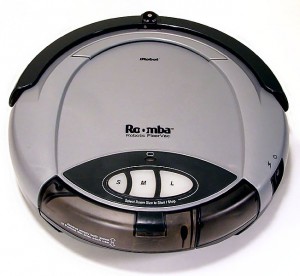Steven Levy has an excellent piece, “The AI Revolution Is On,” in the current Wired. In it, Levy points out that artificial intelligence has turned out to be markedly different than what science in the ’50s and ’60s predicted. The reason is because yesterday’s scientists tried to make machines emulate the human brain. But since we still don’t really know how that organ operates, researchers threw away the playbook during the ’80s and have since focused on allowing computers to be “themselves.” An excerpt:
“AI researchers began to devise a raft of new techniques that were decidedly not modeled on human intelligence. By using probability-based algorithms to derive meaning from huge amounts of data, researchers discovered that they didn’t need to teach a computer how to accomplish a task; they could just show it what people did and let the machine figure out how to emulate that behavior under similar circumstances. They used genetic algorithms, which comb through randomly generated chunks of code, skim the highest-performing ones, and splice them together to spawn new code. As the process is repeated, the evolved programs become amazingly effective, often comparable to the output of the most experienced coders.
MIT’s Rodney Brooks also took a biologically inspired approach to robotics. His lab programmed six-legged buglike creatures by breaking down insect behavior into a series of simple commands—for instance, ‘If you run into an obstacle, lift your legs higher.’ When the programmers got the rules right, the gizmos could figure out for themselves how to navigate even complicated terrain. (It’s no coincidence that iRobot, the company Brooks cofounded with his MIT students, produced the Roomba autonomous vacuum cleaner, which doesn’t initially know the location of all the objects in a room or the best way to traverse it but knows how to keep itself moving.)
The fruits of the AI revolution are now all around us. Once researchers were freed from the burden of building a whole mind, they could construct a rich bestiary of digital fauna, which few would dispute possess something approaching intelligence. ‘If you told somebody in 1978, ‘You’re going to have this machine, and you’ll be able to type a few words and instantly get all of the world’s knowledge on that topic,’ they would probably consider that to be AI,’ Google cofounder Larry Page says. ‘That seems routine now, but it’s a really big deal.'”
Tags: Larry Page, Rodney Brooks, Steven Levy

